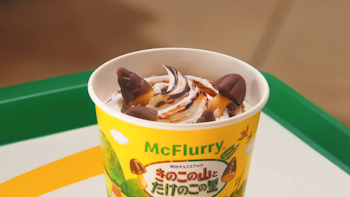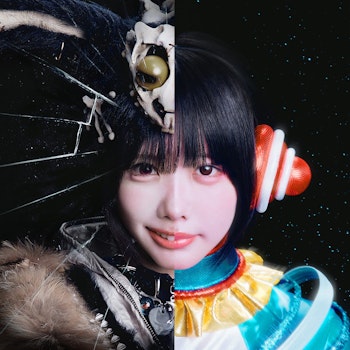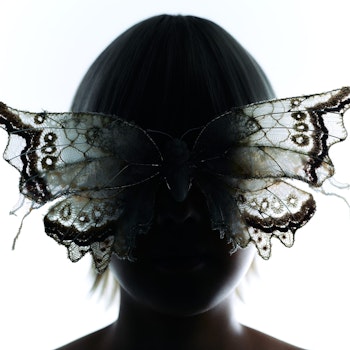
After Tokyo Girls’ Style completed their career-spanning set list at their 15th anniversary show, leader Mei Shoji broke the news: the idol group will be no more after next year. TGS debuted in 2010 at the dawn of the decade’s idol boom alongside peers like Momoiro Clover Z and Angerme, then known as Smile/age. They’ve outlived so many in a fast-changing scene, including groups from Idol Street, the idol-focused subsidiary of their home label Avex Trax. Now it’s time for the act themselves to bow out after one consistent run.
Following the Tokyo Girls Style’s discography from the beginning doubles as a crash course into the history of trends within the idol scene during the 2010s. The group might not have been innovators yet the adaptations made to their main electro-funk sound throughout the years gestured to the future offshoots of idol music to come. Their singles and remix projects touched on many iterations of the funk-based idol music that would rise in prominence throughout the 2010s and into the 2020s: the vaporwave of Especia, the boogie revival of The Dance for Philosophy, the tributes and covers of city-pop classics, to name a few.
The chronology of the Tokyo Girls’ Style catalog also outlines a band of teens growing into the world set in their music seemingly in real time. True to the spirit of the group’s name, their best singles explore young romance unfolding to the tune of bright, urban disco. It’d take a while for not only the mood and atmosphere of the big city to figure more into their music but also for the idols to understand the experience written in the lyrics for themselves. While the musical experiments captivate during the early half of their catalog, their later music proves especially rewarding with their songs richer in narrative and the idols’ performances more nuanced.
Below is a look back at TGS’s discography through 6 songs highlighting each unique point in the group’s long history, from their beginnings all the way to their most recent output before their new self-titled album that’s out in July.
“Kodou No Himitsu” (2011)
Tokyo Girls’ Style arrived in 2010 with a retro electro-funk sound built on glossy synths, sticky bass lines and snappy drums lifted from ’80s bass. The slick style distinguished the group from their more high-energy peers at the time like Momoiro Clover Z and Smile/age amid a huge resurgence of idol groups at the start of the 2010s. While other acts channeled their youth in their music, “Kodou No Himitsu” set TGS apart with the idols speaking in a language seemingly beyond their years. Calling out their unrequited love, the chorus suits more a R&B diva down on her relationship woes than a group of naive teen idols. “Honestly, we didn’t understand a thing; we felt it was a little grown-up,” TGS leader Mei Shoji said in 2020 about the group’s impression on their own music early on. “But they’re songs that we keep singing even after 10 years, and there are things in the lyrics that I connect with or discover as I grow older.”
“Rock You! (tofubeats 1988 dub version)” (2012)
As TGS worked to establish a name for themselves in the mainstream idol scene, they also paid attention to the underground. For a remix EP in 2012, the group granted producers from the netlabel Maltine free reign to warp the idol unit’s sparkling funk into twitchy house tracks. Best known name out of the pack, tofubeats sliced and diced the sticky disco of “Rock You!” into a glitched-out arrangement close to his breakcore dumps made under his DJ Newtown alias. His “1988 dub version” also further teased out TGS’s ’80s electro influences more to the forefront, giving extra focus to the gated drums and synth horns on the mix.
Listening back now, TGS’s collaboration with the netlabel hint at some idol-music concepts just bubbling into existence at the time. A few months after the Maltine remix EP saw the debut of Especia, a group who earned the tag of “vaporwave idols” through their deep-web-drawn visuals and electro-boogie sound — a not-so-distant musical family to TGS’s throwback funk. When called back for the Maltine Girls Waves project in 2014, tofubeats handed TGS’s Hitomi Arai an old-school rap track similar in vein to the releases by hip-hop idols of lyrical school. As idol music rapidly grew, Tokyo Girls’ Style adapted their dance-pop style right along with it.
“water lily ~Suiren~” (2018)
After five years spent steadily rising in the scene, TGS retired the title of “idol group” in 2015, withdrawing from idol-focused events and press to shift goals as pop artists. This period inspired some of TGS’s freshest singles as they embraced influences from all tiers of electronic music in an effort to level up their sound: check their take on future-bass in 2016’s “Mille Filleu,” pure ear candy for those who crave a pop distillation of Rustie’s maximalist post-dubstep.
Like many of their singles from these years, the production behind “water lily ~Suiren~” is firmly of its time: tropical instruments, the dembow-esque riddim, squeaky vocal chops, all sourced from moombahton that sparked a global dance trend during the mid-2010s, even spreading to J-pop all across its scenes. TGS’s choice to follow what’s fashionable only illustrates how the group saw chart-topping acts as their competition, and they appear savvy as they do self-assured like they always performed in this style.
“Bara No Kinbaku” (2020)
TGS gradually took back their idol identity as the 2010s came to a close, performing alongside their original peers at idol festivals. Those few years spent playing in the pop arena, though, paid off as their return to retro-funk exuding a renewed confidence. While “Bara No Kinbaku” puts on a flashy disco sound not unlike their music from the previous decade, the idols’ performance feels more lived-in, like their age has caught up to the world and experiences expressed in their lyrics: “Late at midnight, display, everything in this city is lite / I play it cool, but I really want to see you.” Ten years on from their debut, TGS properly embody their name, living out the city girl’s lifestyle in all its complexities.
“Yume No Naka Ni Tsuretette” (2022)
When city pop began to rise in popularity at the turn of this current decade, TGS looked almost ahead of their time. Their music had openly appreciated Bubble-era dance-pop from the jump, and so they hardly needed to tweak their sound to join the wave. But rather than applying a heavier synth-pop sheen to dish out some shiny future-funk, the group replaced the electro with warm, club-band soul for the songs comprising 2022’s Nocturnal. TGS hadn’t sounded so carefree as they do in “Yume No Naka Ni Tsuretette” while basking in the soft-jazz breeze. Though like the best city pop records, the ebullient music hides a deep melancholy. “A sigh will let us forget everything,” the idols sing, dreaming not to prolong but escape their bittersweet romance. TGS sound so at ease despite being down on their luck, and their peace of mind make for their most grown-up album yet.
“Falling Love Na Toki” (2024)
Nocturnal transitioned TGS into a full-on funk-pop group, shedding any electro fuss for smoother idol-R&B closer to their peers in The Dance for Philosophy. They also incorporated more of the album’s relationship talk that tucked heartbreak underneath deceptively vibrant music, which especially misleads in “Falling Love Na Toki” from the opening lyrics on: “Don’t say goodbye / please stay by my side.” But rather than spin their imminent break-up into melodrama, the idols take the situation in stride, satisfied that they got to experience the relationship at all. “Falling Love Na Toki” exhibits a wiser perspective that only comes with age, perhaps more on display in their upcoming new self-titled album, out in July. It’s a bummer to see their journey end here, but it also marks a neat point to bow out with them more than ready to grow out of the teen version of themselves.










